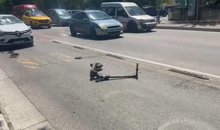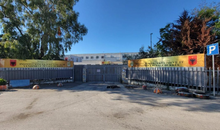
 Flash News
Flash News
Drenova prison police officer arrested for bringing drugs and illegal items into cell
Lavrov: NATO is risking self-destruction with new military budget
Kurti and Vučić "face off" tomorrow in Skopje
Construction worker dies after falling from scaffolding in Berat
The prosecution sends two Korça Municipality officials to trial
'Go castrate' or pay: Cancer patients suffer from the lack of drugs in QSUNT - Faktoje.al
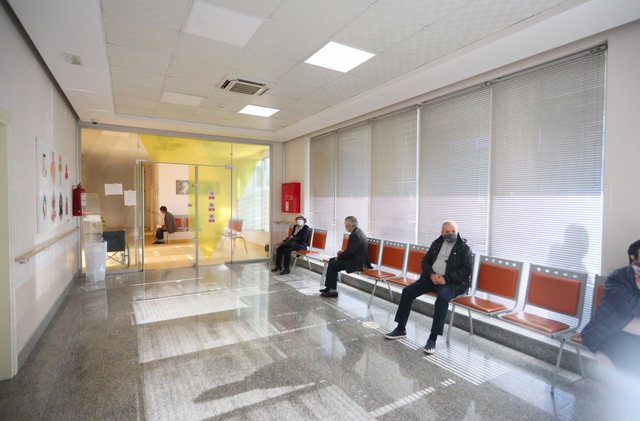
The small budget, corruption and mismanagement push patients suffering from cancer to make difficult choices at the Oncology Hospital of the Mother Teresa University Hospital Center in Tirana.
For two years, Ersida Bode has been knocking at the doors of the oncology hospital at the Mother Teresa University Hospital Center in Tirana (QSUNT) together with her 70-year-old father-in-law, who has been diagnosed with cancer.
Although the health service is legally free in Albania for pensioners, she points out that they are forced to buy out of pocket the drugs for prostate treatment, paying 300 euros for an injection every 3 months.
"They don't give it to people over 70 years old, they say we have an order from the Ministry, but I never saw the order in writing," says Bode, an anesthesiologist-reanimator by profession at Queen Geraldine Hospital in Tirana.
Oncology colleagues have offered her father-in-law castration as a "solution". Although castration is one of the methods of prostate cancer treatment, Ersida insisted that the solution did not seem 'humane at all' considering that it can also be treated with the drug Goserelin.
"It's not normal to tell a 70-year-old man 'go castrate,'" she said. "This is scandalous," added Ersida, while emphasizing that the Oncology doctors told him "what is the problem"?
The difficulties that Ersida and her father-in-law are facing to secure the medicine are not an isolated case for the patients of the Oncology Hospital.
The data collected by Faktoje through an online survey from patients of this hospital show that 64% of them have been forced to pay money out of pocket to buy the medicines needed for the treatment of tumors.
According to Eglantina Bardhi, head of the "Together for Life" organization, the lack of medicines is a consequence of corruption and mismanagement of the health system in Albania.
"The main culprit is an ill-financed health system," she said, while adding that the second culprit is the responsible institutions, the Ministry of Health and hospital directorates that do not manage well the little money they have. The third culprit is the high level of corruption that occurs in the health system", stressed Bardhi.
Albania has a small budget for health in relation to the Gross Domestic Product (GDP) and according to the head of "Together for Life" this is then reflected in the poor health care offered to patients.
"So if they can get the Oncology service, I can say that very few drugs are procured," said Bardhi, while adding that "it is a service that requires millions of euros of investment in drugs."
“Ne kemi më pak buxhet sa i takon shëndetësisë krahasuar me të gjitha vendet e rajonit, pra është diku te 3% e GDP-së”, shpjegoi Bardhi.
Sipas raportit vjetor të Fondit të Sigurimit të Detyrueshëm Shëndetësor për vitin 2023 u shpenzuan 263 milionë euro për financim e spitaleve publike. Barrën kryesore e mban Qendra Spitalore Universitare Nënë Tereza me 169,608 pacientë. Megjithatë, jo të gjithë pacientët që trajtohen në QSUNT janë të kënaqur me shërbimin që ofrohet.
Nëna e Etmirës është diagnostikuar një vit më parë me një lloj kanceri të quajtur “Cholangiocarcinoma”, një nga llojet e rralla të kancerit. Gruaja është trajtuar 1 vit në spitalin Onkologjik në QSUNT ndërsa operacionin e ka kryer në Turqi.
“Në Shqipëri nuk e preknin me dorë”, tregoi Etmira, e cila edhe pse ankohet për kushtet dhe menaxhimin e spitalit, e quan veten me fat që nëna e saj kishte një mjeke të mirë dhe të gatshme për ta ndihmuar në çdo moment.
“Aty është tmerr për të gjetur edhe vende,” tha Etmira, duke nënvizuar që problemet fillojnë që me rojen tek dera. Për shkak se Spitali Onkologjik nuk ofron shërbimin e imuno-terapisë, Etmira tregoi se pas operacionit në Turqi u detyrua që nënën e saj ta dërgonte për të vijuar trajtimin në Itali.
Sipas raportit të vitit 2023 të Kontrollit të Lartë të Shtetit në Spitalin Onkologjik, për shkak të vonesave në prokurime është konstatuar një mungesë e agjentëve të kimioterapisë që shkonte nga 12 deri në 34 ditë – në kundërshtim me përshkrimin e recetës mjekësore.
Mjeku Ilir Alimehmeti theksoi se problematikat në Spitalin Onkologjik janë të shumta dhe të zgjatura në kohë. Sipas tij, vetë politika e centralizimit të të gjitha shërbimeve të specializuara onkologjike në një spital të vetëm bën që shërbimi të largohet nga qytetarët.
“Investimi i ulët në trajtimin e sëmundjeve tumorale, mungesa e burimeve njerëzore, mungesa e infrastrukturës, mungesa e medikamenteve të kimioterapisë, mungesa e pajisjeve të radioterapisë”, tha Alimehemti duke listuar problemet për Faktoje.
Në muajin qershor në Spitalin Onkologjik u zbulua se si një grup mjekësh, farmacistësh, por edhe drejtuesish të QSUNT-së bënin ‘pazare’ me jetët e të sëmurëve me kancer, duke shkaktuar reagime të forta publike.
Hetimet e Prokurorisë së Tiranës zbuluan se mjekët i detyronin pacientët e sëmurë më kancer të trajtoheshin në klinika private si dhe të blinin medikamente që kushtonin mijëra euro.
Sipas anketës të organizuar nga Faktoje nëpërmjet aplikacionit ‘Engaged Community Reporting’ (ECR), 64% e personave të pyetur – përfshirë pacientë aktual të Spitalit Onkologjik, ish-pacientë dhe familjarë të tyre, shprehen se kanë dhënë para nën dorë për stafin mjekësor, që kapin shifra mijëra euro.
Eglantina Bardhit shprehet se ky nuk është një fenomen i ri dhe fatkeqësisht nuk është i kufizuar vetëm në shërbimin e Spitalit Onkologjik.
"This is a well-known situation, not only for the Oncology service at QSUNT, but also in other equally vital services," said Bardhi, while adding that he has been denouncing these phenomena with facts and investigations for 15 years.
"We have also held protests in support of women with cancer to denounce this phenomenon", she added.
The husband of Rezarta Agolli has worked for two decades in the public administration in Albania, but after being diagnosed with cancer a year ago, he was forced to receive health treatment in Italy.
"It was a scandal in Oncology," recalled the lawyer from Tirana. "There was absolutely no communication, the doctors did not understand each other and not the patient," she added.
According to the data collected by the Faktoje survey, more than half of the patients and former patients of the Oncology Hospital were 'dissatisfied' or 'very dissatisfied' with the communication of the doctors and hospital staff.
According to Eglantina Bardhi, to address such a problem, the reform in the health system must be comprehensive and must start from budgetary support and the eradication of corruption.
"The way white shirts are treated must also change," she said. "Changing the mentality of patients, let's not give money to doctors", added Bardhi.
Doctor Ilir Alimehmeti said that the system is in a crisis situation and to overcome the state of emergency, the creation of a comprehensive working group consisting of the best experts inside and outside Albania is needed immediately.
According to him, this group of experts should monitor and evaluate the progress of prevention, early detection, treatment and palliative care of cancer and at the same time create, implement and supervise the short-term plan to deal with tumor diseases according to the recommendations and sustainable objectives of the EU. and WHO.
Taken from Faktoje.al
Latest news



Second hearing on the protected areas law, Zhupa: Unconstitutional and dangerous
2025-06-30 22:18:46



Israel-Iran conflict, Bushati: Albanians should be concerned
2025-06-30 21:32:42

Fuga: Journalism in Albania today in severe crisis
2025-06-30 21:07:11
"There is no room for panic"/ Moore: Serbia does not dare to attack Kosovo!
2025-06-30 20:49:53

Temperatures above 40 degrees, France closes nuclear plants and schools
2025-06-30 20:28:42
Lavrov: NATO is risking self-destruction with new military budget
2025-06-30 20:13:54
Turkey against the "Bektashi state" in Albania: Give up this idea!
2025-06-30 20:03:24

Accused of sexual abuse, producer Diddy awaits court decision
2025-06-30 19:40:44



Kurti and Vučić "face off" tomorrow in Skopje
2025-06-30 18:44:12
Tourism: new season, old problems
2025-06-30 18:27:23


Construction worker dies after falling from scaffolding in Berat
2025-06-30 17:51:44




Almost free housing: East Germany against depopulation
2025-06-30 16:43:06

Hamas says nearly 60 people killed in Gaza as Trump calls for ceasefire
2025-06-30 16:14:15
Drownings on beaches/ Expert Softa: Negligence and incompetence by institutions!
2025-06-30 16:00:03


European ports are overloaded due to Trump tariffs
2025-06-30 15:30:44
The prosecution sends two Korça Municipality officials to trial
2025-06-30 15:19:54

Lezha/ Police impose 3165 administrative measures, handcuff 19 drivers
2025-06-30 14:55:04
Young people leave Albania in search of a more sustainable future
2025-06-30 14:47:52
Record-breaking summer, health threats and preventive measures
2025-06-30 14:36:19


Constitution of the Parliament, Osmani invites political leaders to a meeting
2025-06-30 14:07:54

Heat wave 'invades' Europe, Spain records temperatures up to 46 degrees Celsius
2025-06-30 13:42:02
Accident in Vlora, car hits 2 tourists
2025-06-30 13:32:16

Kurti confirms participation in today's official dinner in Skopje
2025-06-30 13:03:27

Fight between 4 minors in Kosovo, one of them injured with a knife
2025-06-30 12:38:45

Report: Teenage girls the loneliest in the world
2025-06-30 12:20:40
Commissioner Kos and Balkan leaders meet in Skopje on Growth Plan
2025-06-30 12:07:59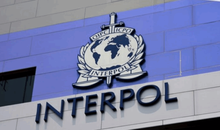
Wanted by Italy, member of a criminal organization captured in Fier
2025-06-30 11:55:53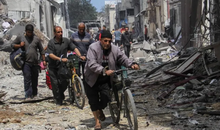
Hundreds of families displaced by wave of Israeli airstrikes in Gaza
2025-06-30 11:45:17
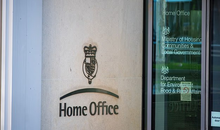
Zenel Beshi: The criminal who even 50 convictions won't move from Britain
2025-06-30 11:23:19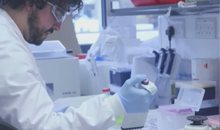
A new variant of Covid will circulate during the summer, here are the symptoms
2025-06-30 11:14:58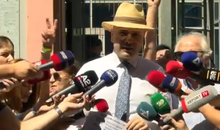
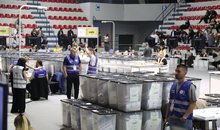
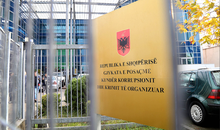
"Partizani" case, trial postponed to July 21 at the Special Court
2025-06-30 10:41:05
Uncontrolled desire to steal, what is kleptomania, why is it caused
2025-06-30 10:30:08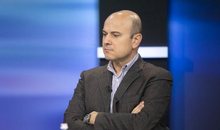
Requested change of security measure, hearing for Malltez postponed to July 7
2025-06-30 10:24:32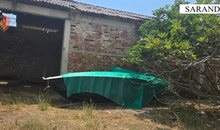
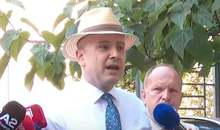

Output per working hour in Albania 35% lower than the regional average
2025-06-30 09:54:35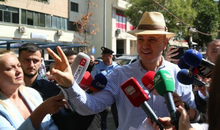

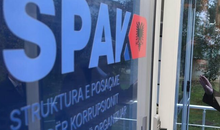
The trial for the "Partizani" file begins today
2025-06-30 09:27:57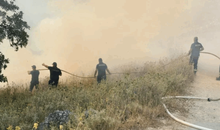
22 fires in the last 24 hours in the country, 2 still active
2025-06-30 09:21:28
How is the media controlled? The 'Rama' case and government propaganda
2025-06-30 09:13:36
German top diplomat: Putin wants Ukraine to capitulate
2025-06-30 09:00:07
Foreign exchange, how much foreign currencies are sold and bought today
2025-06-30 08:44:38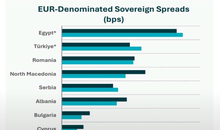
Chart/ Sovereign risk for Albania from international markets drops significantly
2025-06-30 08:26:38
Horoscope, what do the stars have in store for you?
2025-06-30 08:11:44
Clear weather and passing clouds, here is the forecast for this Monday
2025-06-30 07:59:32
Morning Post/ In 2 lines: What mattered yesterday in Albania
2025-06-30 07:47:37
Milan make official two departures in attack
2025-06-29 21:57:23
6 record tone
2025-06-29 21:30:46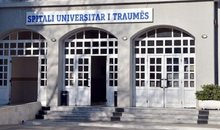
4-year-old girl falls from balcony in Lezha, urgently taken to Trauma
2025-06-29 21:09:58


Assets worth 12 million euros seized from cocaine trafficking organization
2025-06-29 19:39:43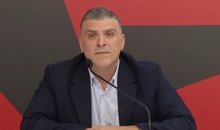
Fire in Durrës, Blushi: The state exists only on paper
2025-06-29 19:17:48

Fire endangers homes in Vlora, helicopter intervention begins
2025-06-29 18:27:51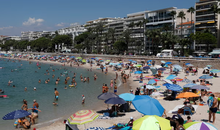
France implements smoking ban on beaches and parks
2025-06-29 18:02:08
England U-21 beat Germany to become European champions
2025-06-29 17:42:49
Trump criticizes Israeli prosecutors over Netanyahu's corruption trial
2025-06-29 17:08:10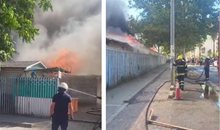
Street market in Durrës engulfed in flames
2025-06-29 16:52:57

UN nuclear chief: Iran could resume uranium enrichment within months
2025-06-29 16:03:24
Albanian man dies after falling from cliff while climbing mountain in Italy
2025-06-29 15:52:01
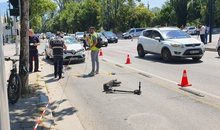
Another accident with a single-track vehicle in Tirana, a car hits a 17-year-old
2025-06-29 15:07:15
While bathing in the sea, a vacationer in Durrës dies
2025-06-29 14:54:01
Sentenced to life imprisonment, cell phone found in Laert Haxhiu's cell
2025-06-29 14:26:40
77 people detained in protest, Vučić warns of new arrests
2025-06-29 14:07:46